Behind the Mic: Aaron Bradley
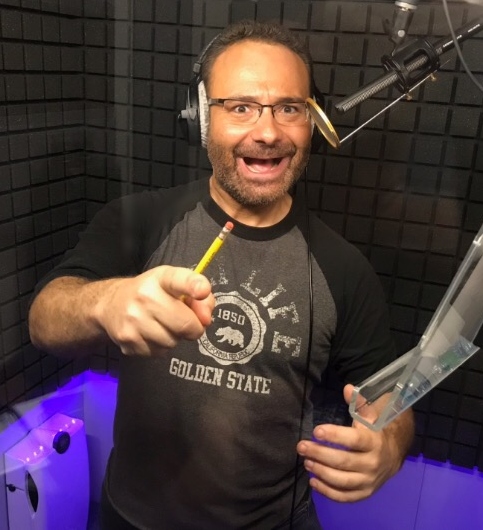
I have worn more hats in media and broadcasting than most. For 10 years I was a news and weather anchor in top markets like Philly and Miami before transitioning to full-time VO in 2010. The entire time I worked in media I had a voiceover business on the side. I began in VO in 1999. Today, I voice numerous TV (news) affiliates, radio stations, promos, commercials, video games and narration. I primarily specialize in TV and radio imaging.
What radio VO work have you done in the past (stations/markets)?
The bulk of my work now is in TV News / Affiliate and Radio Imaging. My very first paid TV affiliate VO market was Yuma, Arizona, which coincidentally was also my first on-air market in TV news.
What are you up to presently (freelance/on-staff at a station)?
I am voicing a lot, most all on retainer. From major country stations in OKC to News/Talk stations in Albuquerque to conglomerates with iHeart and Audacy to TV affiliates galore in large and medium markets like Chicago, Cincinnati, Jacksonville, Tampa and small markets like Idaho Falls and Myrtle Beach, my portfolio is constantly growing.
Check out Aaron’s demos!
What do you love about your job?
Everyday it’s something new and creative. From breaking news to voicing a promo for a country station to a commercial for a car we never know what the day has in store for us. Everyday we get to be our best.
How did you get started as a VO actor?
I was in community theater as a young 7 year old and always liked acting and broadcasting in some form. I pursued a communications degree and after graduating I was off to the races. In college I had the evening drive time radio show and while still in college I voiced my first VO working at the radio station, it was a PSA and after that I was hooked. After college I worked in radio and then transitioned into TV news. While working in TV news a creative services director showed me the ropes for TV affiliate voiceover and I never looked back.
What was your first gig? Any memorable ones since then?
It was a PSA for a car pooling company in the Greater Philadelphia area. Since then my most memorable was voicing promos for Cuomo Primetime on CNN.
Who are your VO idols/mentors?
While working as the local weatherman in South Florida, I was fortunate to meet and mentor under the late Peter Thomas, the voice of the hit series Forensic Files and NOVA. I learned so much in terms of breathing, articulation, vocal range and versatility. Since then, I have worked with many of Hollywood’s top VO coaches and producers.
If you weren’t doing voiceover, what else do you think you’d be doing for a career?
TV news broadcasting. TV news runs deep in my family as the son of a news director and a former on-air talent myself.
What did it feel like the first time you heard your voice on the radio/television?
It was in high school hosting the televised morning announcements for the school. I would beg for copies of the broadcast and play them over and over again. I was totally hooked, borderline obsessed.
How has new technology changed the way you work?
When I started in radio and TV we still used tape. Voiceover cassette tapes were our demos. Everything now is digital and home studio based. The business has changed drastically in my 20 years and all for the better.
What gear do you use on the road? In your studio?
I have Macs running multiple DAWS, an Apollo twin X with UA tube preamps and plugins, a Sennheiser 416 and TLM 103 mics. I use Source-Connect for live sessions and work in a custom built Quiet Rock sheet rocked booth within a 20’x20’ studio.
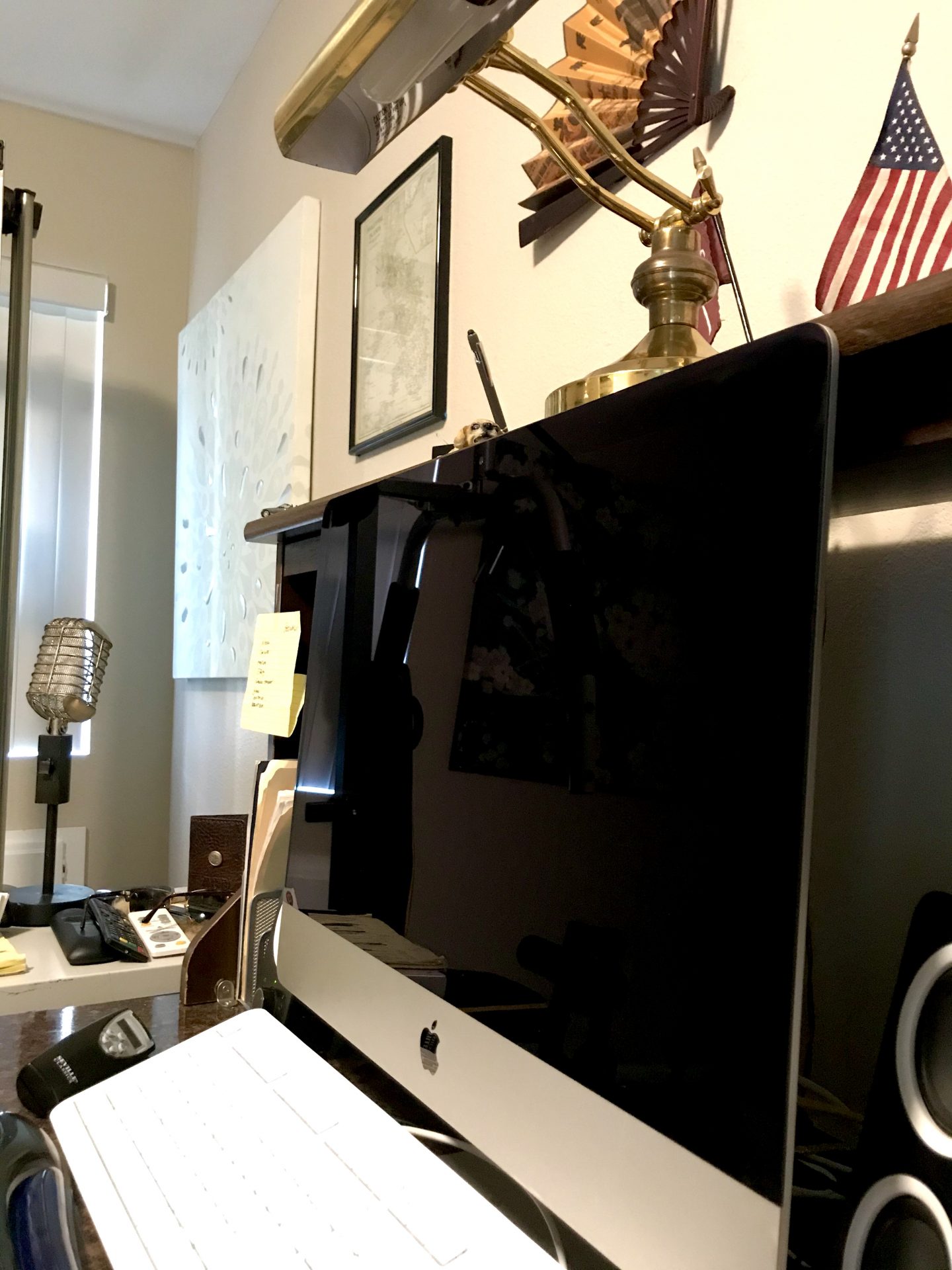
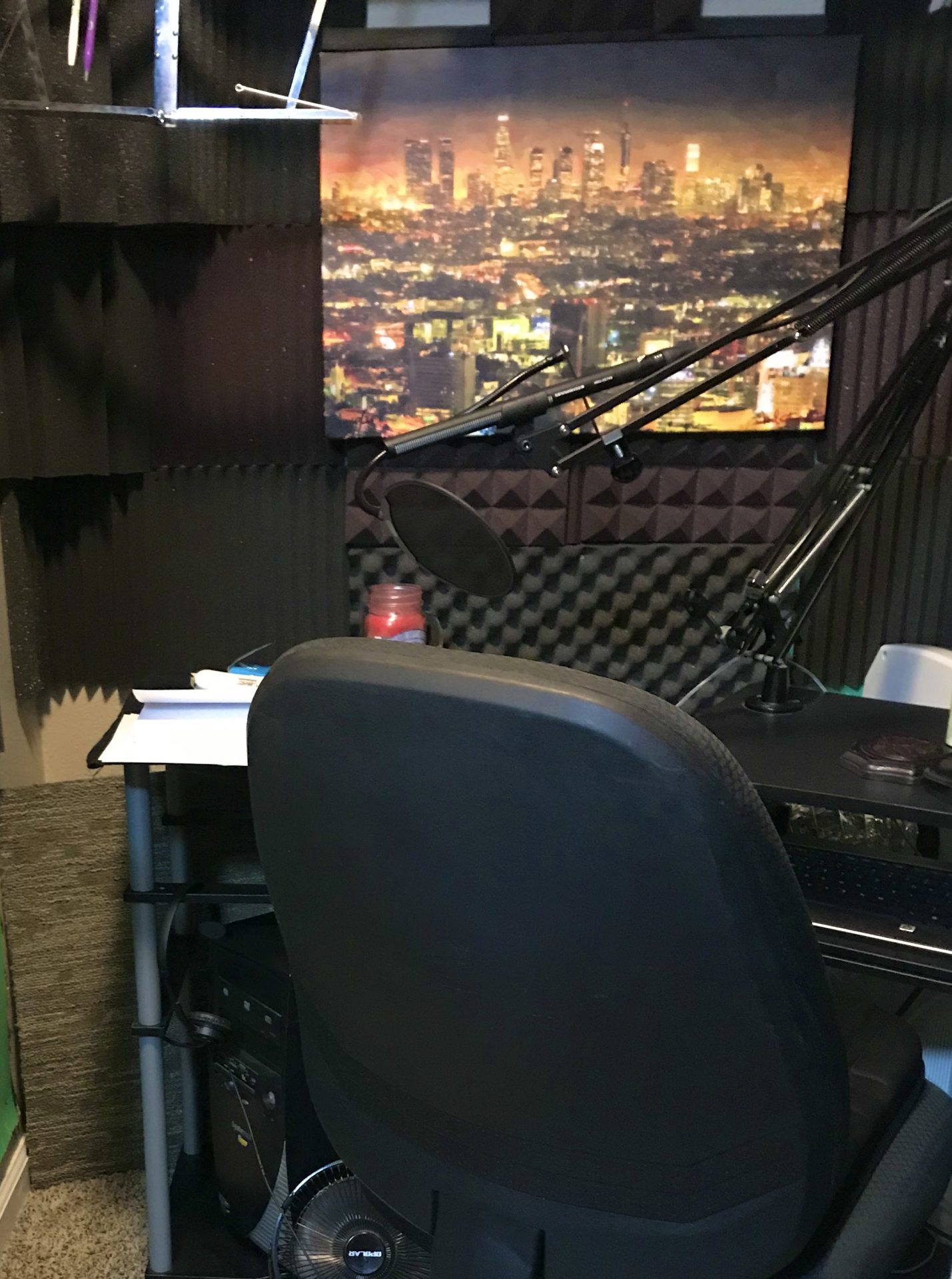
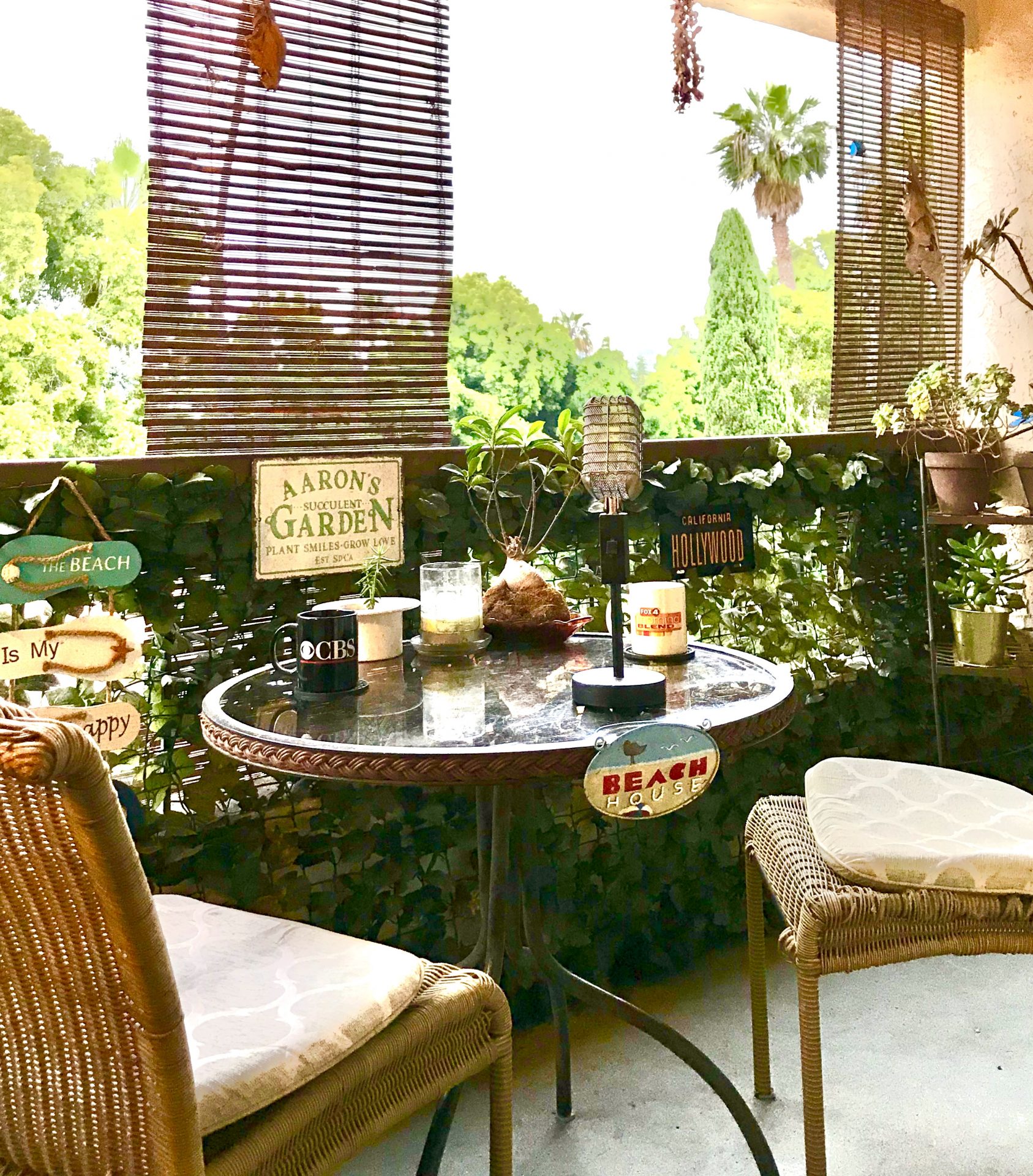 rha
rhaAaron’s Studio Setup!
Which production system do you use and why?
I use Protools and Twisted Wave. I mainly use Twisted Wave for daily quick VO work that’s basically record and send. I have many plugins from RX Elements, X Crackle, and use the API Channel Strip in the Apollo, all set up by George Whittam, Don LaFontaine’s audio engineer here in Hollywood.
Have you ever had a voice coach? Would you recommend it?
I have had many. I have worked with nearly all of the VO coaches in LA and Hollywood for one-on-one coaching and also demo prep.
How do you schedule/prioritize your work? How much time do you spend auditioning for new work?
I work with TV stations and radio stations doing news. All breaking news and news related promos always come first. I audition and market for new work in the late afternoons.
How do you market your services to potential clients?
I am a big fan of direct email marketing. This means contacting hiring managers directly via email. I have built my business this way.
When it comes to VO work, studio & gear, what are your most ingenious methods/discoveries for saving time and cash?
Don’t overdo it. Get a good mic, audio interface, inexpensive DAW and computer and a quiet recording space and get going. Don’t overthink it and spend an arm and a leg on it.
What is the best voice processing trick or voice-over technique everyone should know?
I personally have found that recording directly from the mic into the DAW and amping up the audio 1.9 DB works well for some imaging work, as opposed to normalizing the audio.
Do you have a different approach to reading radio imaging copy as opposed to TV/Radio commercial ads?
Absolutely. I do a lot of News/Talk and Country stations that go for the “big” voice especially in radio imaging. Commercials are usually natural delivery and a more intimate sound. Nearly everything changes.
Can you offer 3 helpful tips for newbies trying to make it in the voice-over industry?
Voiceover is not for everyone. It is a difficult business to break into that requires a lot of time, money upfront, coaching and learning to make it happen. I like to use the three “T’s” to teach students trying to enter the field. You need to give it Time, you must have the Tenacity to stay in the game and you must develop the Talent to compete with your peers and book.
If you could go back in time and hang out in any decade, which one would you go back to and why?
For me the early 2000’s were a time of great friends, exciting job in TV news moving around the country and really paying my dues in a business I love. It was such an exciting time.
Favorite 2 pizza toppings?
Pepperoni and Mushroom.
If you could invite one person to dinner, living or dead, who would it be?
George Washington. The founding father of America and everything we stand for would be an amazing chat.
Connect with Aaron:
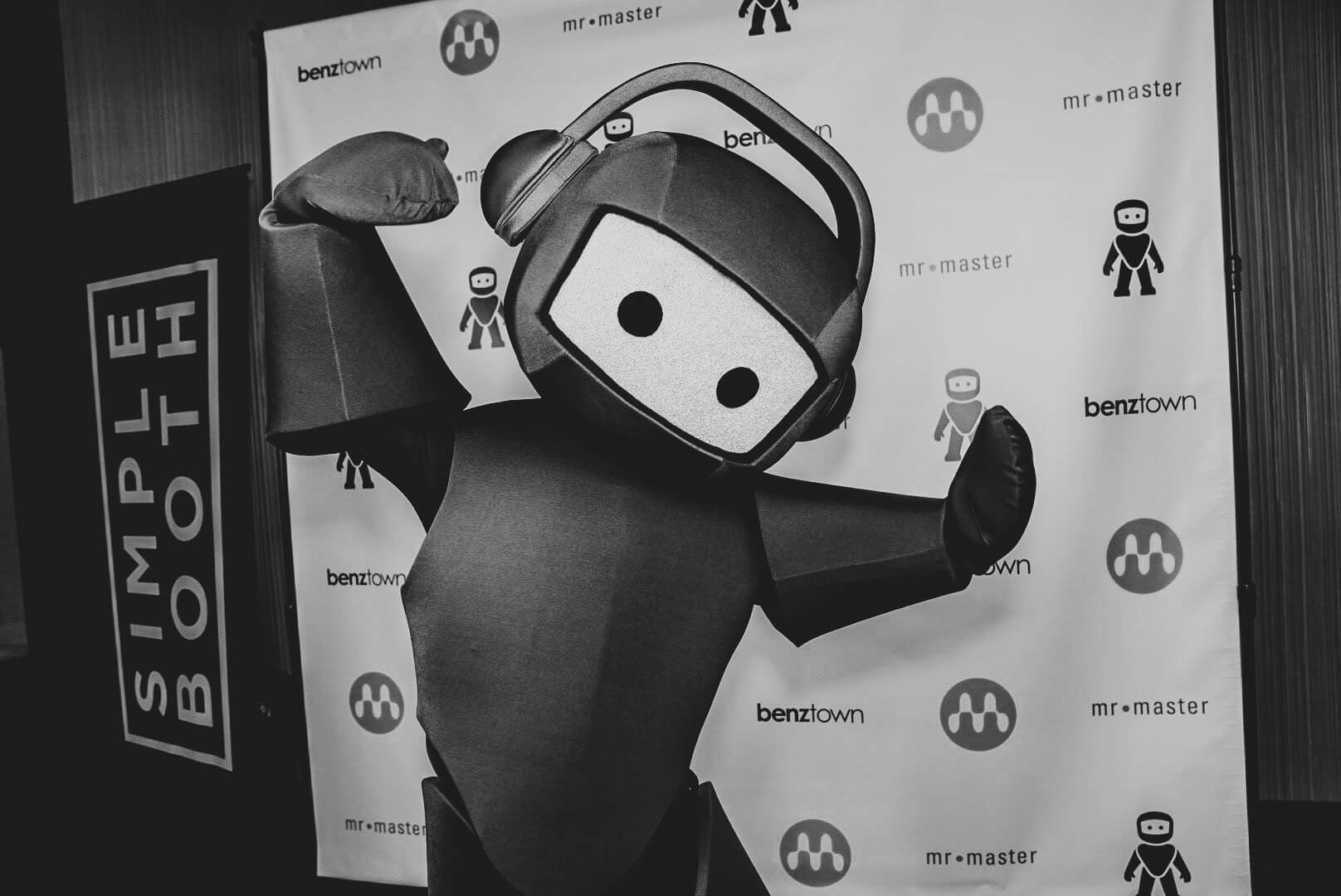;)